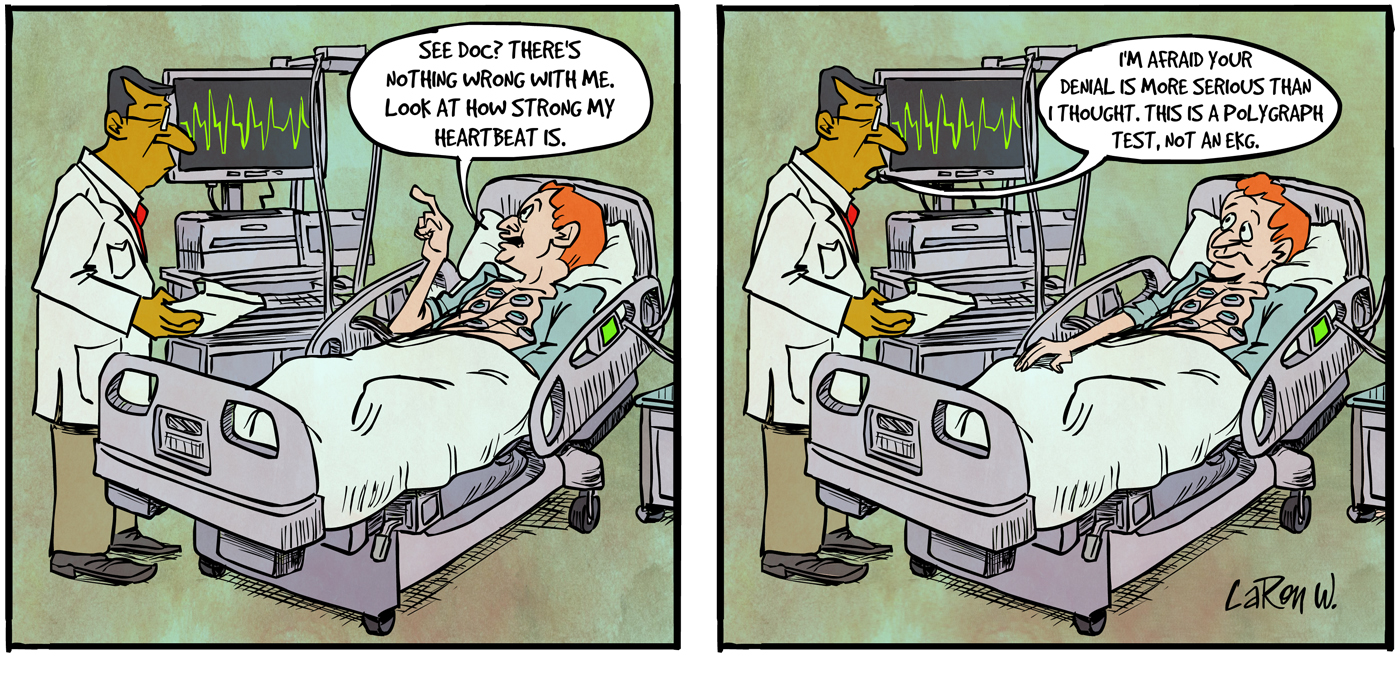Share #1
In one of the Harry Potter books, the defense against the Dark Arts teacher would shout, “Constant vigilance!” He meant, of course, that constant vigilance is necessary in order to stay safe from practitioners of the dark arts. When I read this, my first thought was “That’s how I have to be with my sexaholism.” When I forget that I’m a sexaholic, my addict takes over. And since this is a forgetting illness, it’s all too easy to get into that state of forgetfulness. It’s only constant vigilance that works.
Alcoholics Anonymous (84-88, Steps Ten and Eleven) provides a simple method for maintaining constant vigilance. These pages provide a clear set of actions to take in the morning and in the evening, and we are told to pause throughout the day when agitated or doubtful. This works quite well for me.
Personally, I can usually tell when my mental/emotional balance starts to go awry. And that’s the sign that I’m heading towards a slip. So I pause and analyze the situation. Usually it’s because something or someone is not going the way I want it to go. When this happens, I tend to get irritated, anxious, and fearful. I then surrender the situation to the God of My Understanding and remind myself that God is running my life these days—so whatever happens is His will for me. And this is usually sufficient to get my thinking back on track.
Chad C., sober for 2077 days
Share #2
Part of the process for me has been smashing the idea that I can lust like a normal person.
I too follow the “design for living” found in Alcoholics Anonymous (84-88). It’s a gold mine! Each day I begin with the morning meditation and ask God how I can best serve Him today. His will, not mine, be done. I used to read this and think to myself, “What a pious platitude!” But I’ve found that this is precisely the point of the program—to become more useful to God and my fellows. This is the 180 degree turn.
I have the tools to deal with resentment, anger, self-pity, and all my other character defects: ask God to remove them, talk to someone about them immediately, and look for someone I can help. I’m fortunate that I have a family, because I’m never short of opportunities to be helpful.
In short, the way I maintain vigilance is to do what I’m supposed to be doing—what God wants me to be doing.
Anonymous
Share #3
Some readings at last night’s SA meeting touched on why we must be vigilant and how we might maintain a “fit spiritual condition.”
Why be vigilant?
Alcoholics Anonymous (58) does not say: “Some of us have tried to hold on to our old ideas and the result was less than perfect until we let go absolutely.” It does say, “Some of us have tried to hold on to our old ideas and the result was nil until we let go absolutely.”
Page 59 does not say: “Half measures availed us half of the benefits of recovery.” It does say “Half measures availed us nothing.”
Page 83 does not say: “The spiritual life is a great theory. We have to learn as much about it as we can.” It does say, “The spiritual life is not a theory. We have to live it.”
Page 83 also does not say: “If we try to get to one meeting per week to listen to how others are recovering and read some posts online, we will be amazed before we are half way through” [i.e., we will experience the Promises]. It does say, “If we are painstaking about this phase of our development, we will be amazed before we are half way through.” [We will experience the Promises.]
After describing the great benefits of recovery (the Promises), page 84 does not say, “They are being fulfilled among us—sometimes quickly, sometimes slowly. They will always materialize if we listen and read about how others are working the Steps.” It does say, “They are being fulfilled among us—sometimes quickly, sometimes slowly. They will always materialize if we work for them.”
How am I vigilant?
Alcoholics Anonymous (85) warns us that “It is easy to let up on our spiritual program and rest on our laurels,” but that we’re “headed for trouble if we do” In other words, we must be constantly vigilant! Our daily reprieve is “contingent on the maintenance of our spiritual condition.” I have often engaged in discussions about how I can maintain my spiritual condition. I’ve done lots of philosophizing and analyses of what’s working and why it might be working.
Interestingly, I discovered just last night that Bill W. answers the question of how I can maintain my spiritual condition in the next few lines! (Sometimes it takes a while for things to click for me!) He says, “Every day is a day when we must carry the vision of God’s will into all of our activities. ‘How can I best serve Thee—Thy will (not mine) be done.’ These are thoughts which must go with us constantly” (AA 85). And I realized that’s exactly what it does take for me. I need to learn to be conscious of God throughout the day. I need to become more aware of what He wants me to do and what He wants me to think about—not in general, but in every circumstance in which I find myself all day long. Then I have to do it! And think it! I’ve heard this called “living before the face of God.” As usual, simple but not easy.
That’s what I need to ponder, anyway. No, I’m sorry—that’s what I need to do.
Your brother in recovery,
Dana






